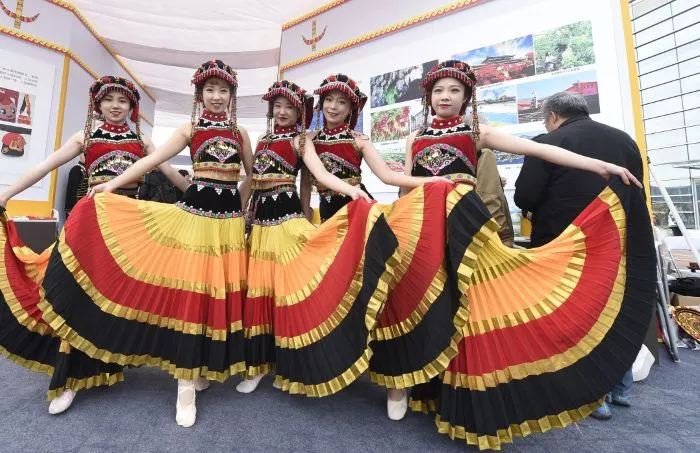The ninth Chengdu International Intangible Cultural Heritage Festival opened with spectacular fanfare, bringing together custodians of cultural traditions from across the world. Jointly organized by the Sichuan Provincial Government, China’s Ministry of Culture and Tourism, UNESCO, and the Chinese National Commission for UNESCO, this year’s event features innovative programming that highlights both preservation and innovation in cultural heritage.
Yunnan Province emerged as a standout participant, presenting seventeen distinctive intangible cultural heritage items that captivated attendees. The province’s showcase ranged from intricate handicraft techniques to dynamic performance arts, offering comprehensive insight into the region’s rich cultural ecosystem. This diverse presentation underscores Yunnan’s successful efforts in sustaining living traditions while adapting them for contemporary audiences.
A highlight of the opening ceremony came from Yunnan’s Diqing Prefecture Song and Dance Troupe, whose performance of the Lisu ethnic group’s Achimugua dance electrified the audience. The energetic, authentic presentation demonstrated why this traditional dance form has endured through generations, combining rhythmic footwork with vibrant costumes to create a mesmerizing spectacle.
This year’s festival introduced several new elements to enhance cultural exchange, including a “guest country” and “guest city” mechanism. The innovative “3+3+N” programming structure has attracted nearly 400 inheritors, craftspeople, and scholars from over 60 countries, with notable participation from Italy, Russia, and Japan. Fifty-one international performance groups contributed to the opening parade, creating a dazzling display of global cultural diversity.
As one of China’s most significant platforms for intangible cultural heritage preservation, the Chengdu festival continues to evolve in its mission to safeguard living traditions. By facilitating dialogue between practitioners and providing international exposure for local art forms, the event plays a crucial role in ensuring these cultural treasures remain vibrant for future generations while fostering mutual appreciation across borders.
Related Topic:
- Morocco: A Tapestry of North African Wonders
- Australian Tourism Industry Rides China’s Visa-Free Wave
- 2025 Chinese Opera Festival Debuts in Vienna with Stunning Wu Opera Performance

